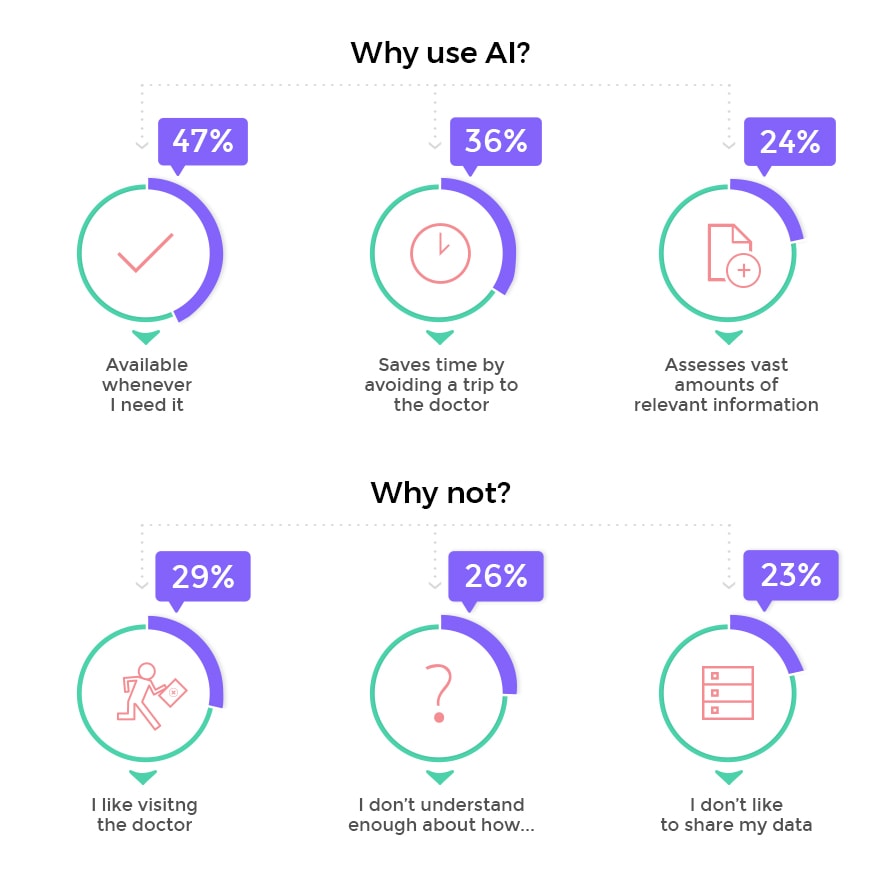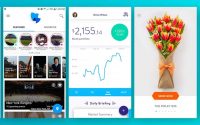Healthcare Mobile App Development Trends 2018
Technology is changing each and every facet of different industries phenomenally. The Healthcare industry has witnessed rapid technological evolution. Undoubtedly, no one can dispute technology’s ability to enable us all to live longer, healthier lives. Right from healthcare mobile apps, surgical robots to smart hospitals, technology is transforming patient care in an innovative fashion.
With thousands of mobile applications available for end users and healthcare professionals, health applications that have different functionalities to monitor concerns related to fitness, lifestyle and stress, and diet and nutrition. Several healthcare mobile applications allow tracking fitness goals, healthy, as well as providing suggestions towards living a healthy life. The best part of healthcare apps is that the majority of apps are free to download.
The total market size of mobile health mobile health industry is expected to reach 60 billion dollars by 2020. With changes in health concerns fluctuate in coming years, the potential to treat the condition using mobile technology will continue to grow. In conjunction with healthcare mobile applications several hospitals and healthcare providers are using automated systems. This automated system makes workflow management easy and convenient.
Healthcare technology sophistication aims to deliver significant benefits as consumers show strong use of digital technology. According to Accenture survey, in 2018, 75 % of US consumers surveyed said technology is vital to manage health. Consumers are open to embracing intelligent technologies that would improve the overall patient care such as consultation and monitoring.
Here is a quick comparison of technologies gaining prominence in 2018:
Data Courtesy:Accenture 2018
It is important for healthcare providers to stay abreast of changes. Virtual care, robotics and artificial intelligence (AI) are now attracting interests of users. There is an opportunity for healthcare mobile application development providers to differentiate themselves by offering new, technologically advanced services that satisfy consumer interest and expectations.
Artificial Intelligence
Patients like the availability, time savings and personalized insights from AI. According to survey, healthcare consumers are comfortable with AI-assisted surgery compared to surgery planning over traditional approaches. More than half (56 percent) of survey respondents prefer AI-assisted surgery after learning about its benefits. Younger people are more open to robot-assisted surgery. Before being informed of the benefits, 46 percent of those aged 18-44 would prefer it.
 Data Courtesy: Accenture.com
Data Courtesy: Accenture.com
Blockchain and Healthcare
Blockchain the latest buzzword in the technology industry has the power to transform the healthcare ecosystem, patient care, security and privacy. With the focus now shifting on organizing voluminous amounts of data from a wide range of clinical and non-clinical sources, the need for advanced technology that will protect privacy and security while democratizing access to the data will probably be the single most significant argument in favor of blockchain in the coming year.
Blockchain relies on well established cryptographic procedures to allow each participant in a network to interact without preexisting trust between the parties. In a blockchain system, there is no central authority; instead, transaction records are stored and distributed across all network participants.
Hospitals Using Smart Technology
The connected world is creating a whole new world of products to enhance patient comfort and care. With the ability to provide a seamless connectivity and automation, these tools take the pressure off healthcare providers and put the control back in customer’s hands. Healthcare organizations are now using smart technology to support patient’s medical condition. Other clinics are using robots that can monitor a patient without a human provider being in the room. Smart devices and applications will continue to grow and spread throughout the healthcare field.
Augmented Reality Training For Healthcare
Augmented reality is a major trend across all industries. It is gaining prominence in the healthcare field with major implementation in medical training. With Augmented Reality mobile applicaitons, healthcare providers can enhance their skills and expand knowledge by witnessing diagnosis right in front of them. Augmented reality can train more providers at a given point of time, which could help overcome the acute shortage of trained and highly skilled professionals around the world. Augmented reality can help doctors get information readily in an easily digestible manner to upgrade and refine skills to treat patients.
Wearable Devices
Wearable devices are taking healthcare to the next level by involving and investing in the personal health. Wearable devices like activity trackers or fitness bands help users to stay more active and healthier on their own eliminating their need to visit the doctor. Several advanced healthcare trackers can monitor vitals such as blood pressure, heart rate, and more. In case patient’s blood pressure deviates the doctor can receive a notification for timely action.
With the increasing rise of the Internet of (Medical) Things (IoMT), mobile and wearable devices are getting connected, creating a seamless ecosystem where medical reports are accessible anywhere, anytime by healthcare provider. This data can be used for patient care, as well as studying healthcare trends across different geographies.
Cloud Solutions
Mobility and cloud have been at the forefront of technologies helping to increase accessibility for patients and doctors alike. Healthcare organizations, insurance companies, and doctor/physician’s offices are now storing patient medical records in the cloud, with patients able to access test results online 24/7.
By having every data on the cloud, it becomes much easier to access records, bills, and their health insurance plans. With the presence of Cloud computing, Mobile Health market becomes more accessible and automated.
Conclusion
When it comes to healthcare, being future ready is the key to changing the way healthcare is delivered. Technology is all about affording greater opportunities to people to live a healthy and balanced lifestyle. It is no longer about what technology can achieve, rather what people can achieve with technology advancements.
written by Albert Smith for Apps section(s).
Source
https://www.hiddenbrains.com/blog/healthcare-mobile-app-development-trends.html


